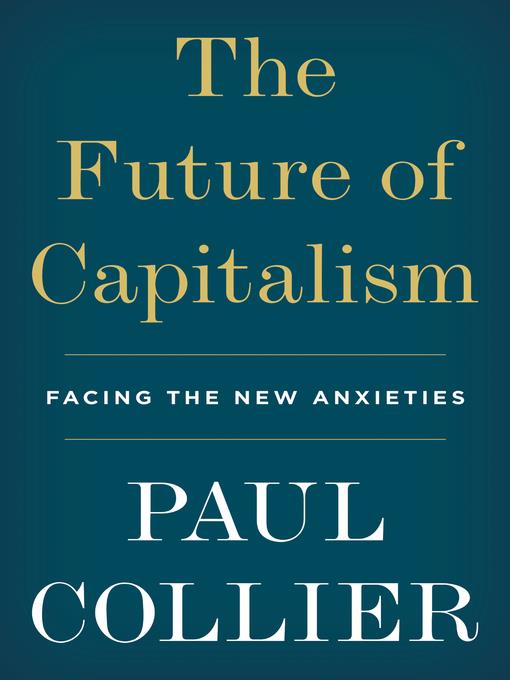
The Future of Capitalism
Facing the New Anxieties
- اطلاعات
- نقد و بررسی
- دیدگاه کاربران
نقد و بررسی

July 1, 2018
A leading economist who once served as director of the World Bank's Research Department and won both Lionel Gelber and Arthur Ross honors for The Bottom Billion, Collier takes a hard look at today's economic and social inequalities and suggests ways to fix them by addressing flaws in capitalism itself. For both left-wing and right-wing readers; with a 100,000-copy first printing.
Copyright 2018 Library Journal, LLC Used with permission.

October 1, 2018
A potent argument for "ethical capitalism," driven not only by greed, but by "moral purpose," to overcome deep societal rifts.In this masterful blend of personal experience and the best thinking of diverse social scientists, economist Collier (Economics and Public Policy/Oxford Univ.; Exodus: How Migration Is Changing Our World, 2013, etc.) analyzes the current breakup of the "cornerstones of belonging"--family, workplace, and nation--and the ensuing frustrations that have opened the way for populists and ideologues. He urges pragmatic policies to manage capitalism (which is "not working" for many), rebuild the "beleaguered center" of the political spectrum and restore the "ethics of community" to contemporary life. He centers on three major societywide divides: between metropolitan centers and the provinces; between successful and poor families; and between prosperous nations (the United States, Britain, and France), where he has lived, and the developing world, where he has worked. "There is a widening regional divide between the booming metropolis and decaying provincial cities; there is a widening class divide between those in prestigious and fulfilling jobs and those in dead-end jobs, or none at all," he writes. Only "practical new thinking" can heal such "damaging cleavages." Collier's benchmark for the "ethical state" is the postwar period (1945-1970) of his childhood, when each nation became a "gigantic community" based on "a strong sense of shared identity, obligation, and reciprocity" and harnessed capitalism for the benefit of all. The author is especially good on the forces unraveling shared identities, from the rise of smartphones and social media to declining home ownership among the young and my-country-first nationalism as opposed to patriotism. Many of Collier's recommendations stress the need to strengthen failing families by "curtailing self-aggrandizing strategies of those who are well educated and highly skilled." Great firms need a sense of purpose beyond making money, he writes.A powerful, bracing call for a return to New Deal ethics in the age of Trump and Brexit.
COPYRIGHT(2018) Kirkus Reviews, ALL RIGHTS RESERVED.




دیدگاه کاربران